Let's Talk About Autism
Help increase awareness and acceptance of autism spectrum disorder by sharing information and resources based on the latest research. https://go.nih.gov/nLv8oCK #shareNIMH

An official website of the United States government
Here’s how you know
Official websites use .gov
A .gov website belongs to an official government organization in the United States.
Secure .gov websites use HTTPS
A lock ( ) or https:// means you’ve safely connected to the .gov website. Share sensitive information only on official, secure websites.
Due to current HHS and NIH restructuring, some content on nimh.nih.gov is not being updated regularly. Please refer to clinicaltrials.gov and nih.gov for up-to-date information on NIH research.
Transforming the understanding
and treatment of mental illnesses.
Use these resources to raise awareness about autism spectrum disorder.

Autism spectrum disorder (ASD) is a neurological and developmental disorder that affects how people interact with others, communicate, learn, and behave. For more information on signs and symptoms, causes and risk factors, diagnosis, and interventions, visit our health topic page or download our brochure.
Help raise awareness by sharing information and materials based on the latest research.
Download and share these messages to help spread the word. You can copy and paste the text and graphic into a tweet, email, or post. We encourage you to use the hashtag #shareNIMH in your social media posts to connect with people and organizations with similar goals. For more ideas on how to use these resources, visit our help page.
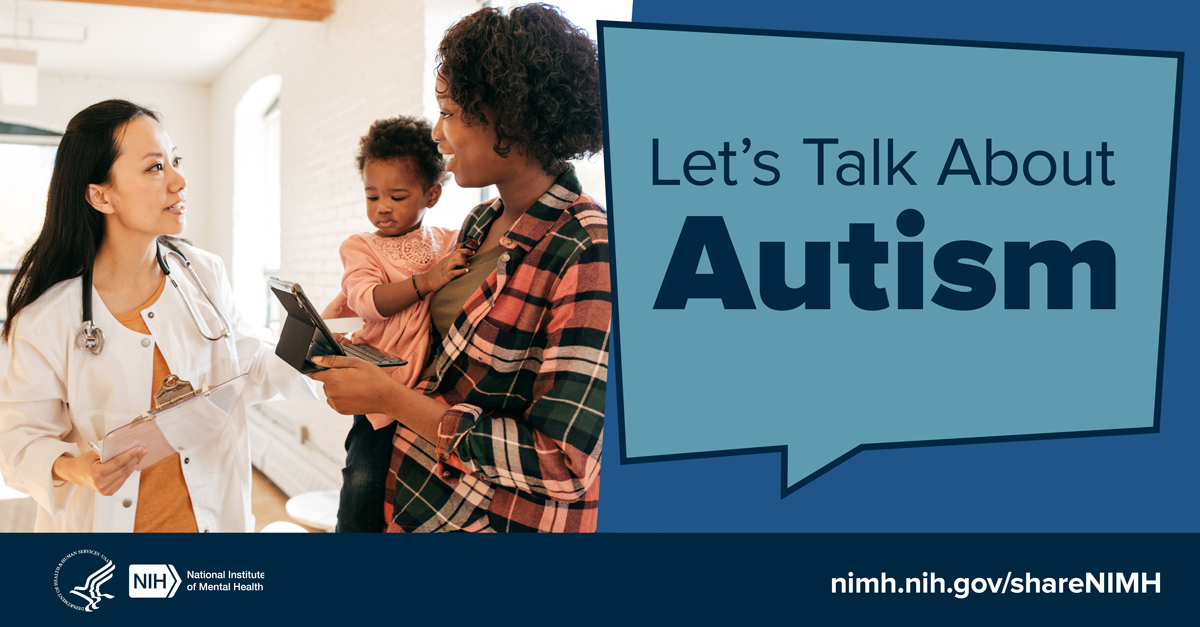
Help increase awareness and acceptance of autism spectrum disorder by sharing information and resources based on the latest research. https://go.nih.gov/nLv8oCK #shareNIMH
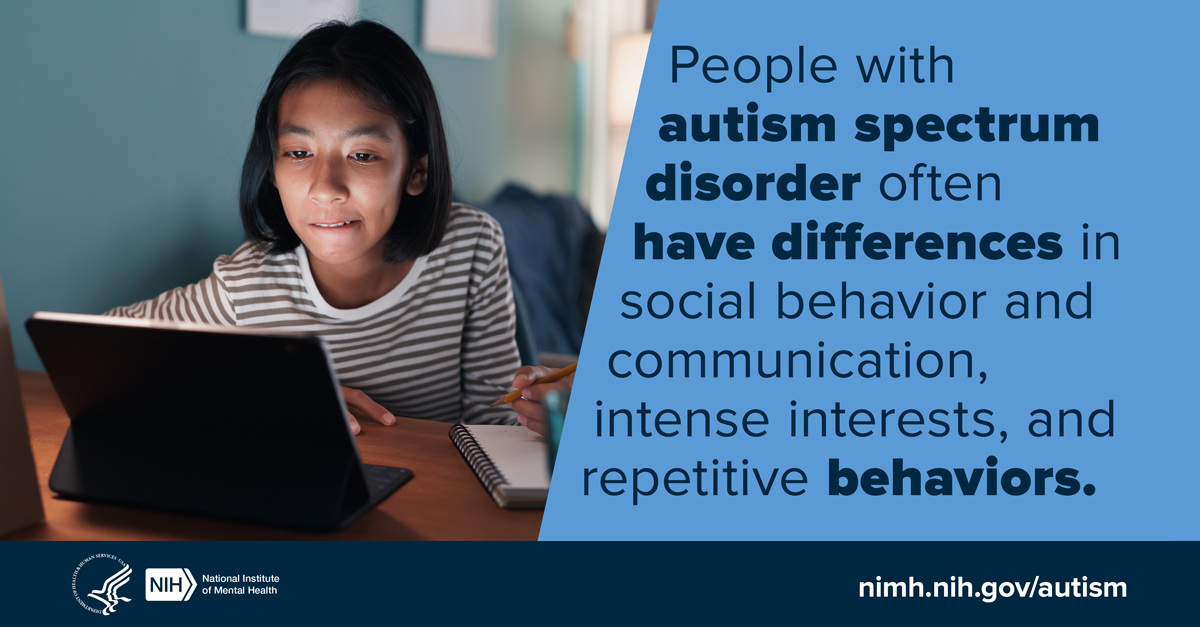
People with autism spectrum disorder often have differences in social behavior and communication, intense interests, and repetitive behaviors. Learn more about the signs, diagnosis, interventions, and resources: https://go.nih.gov/nLv8oCK #shareNIMH

Autism occurs in all ages, races, ethnicities, sexes, and socioeconomic statuses. Learn more about supporting people on the autism spectrum. https://go.nih.gov/nLv8oCK #shareNIMH
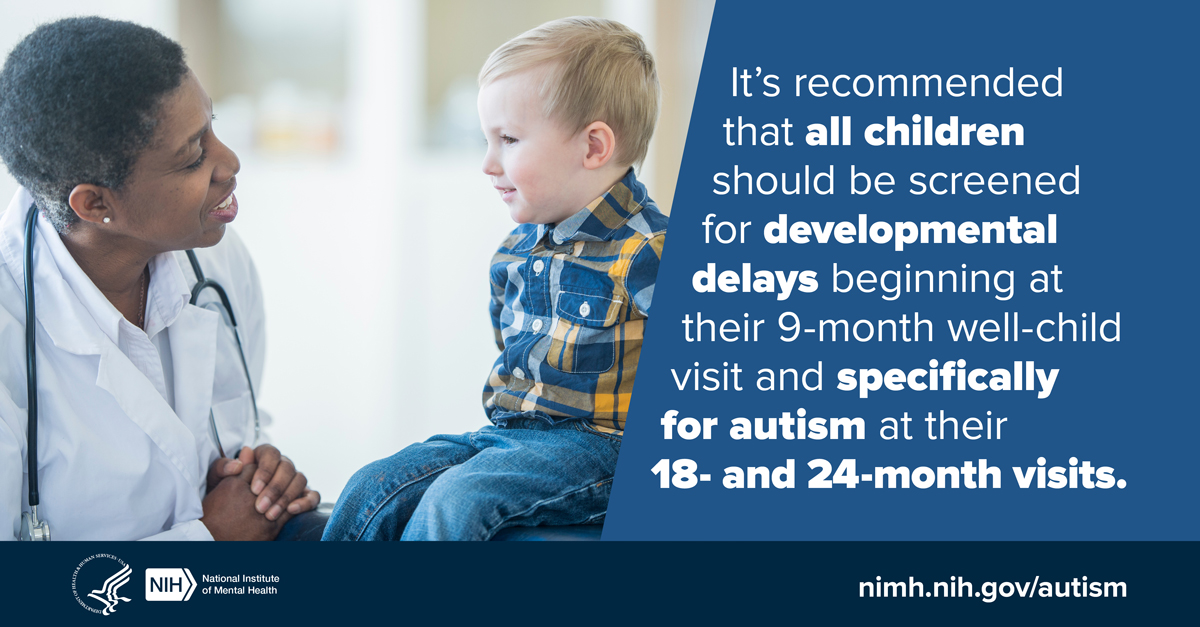
It's recommended that all children should be screened for developmental delays beginning at their 9-month well-child visit and specifically for autism at their 18- and 24-month visits. Learn more at https://go.nih.gov/nLv8oCK #shareNIMH
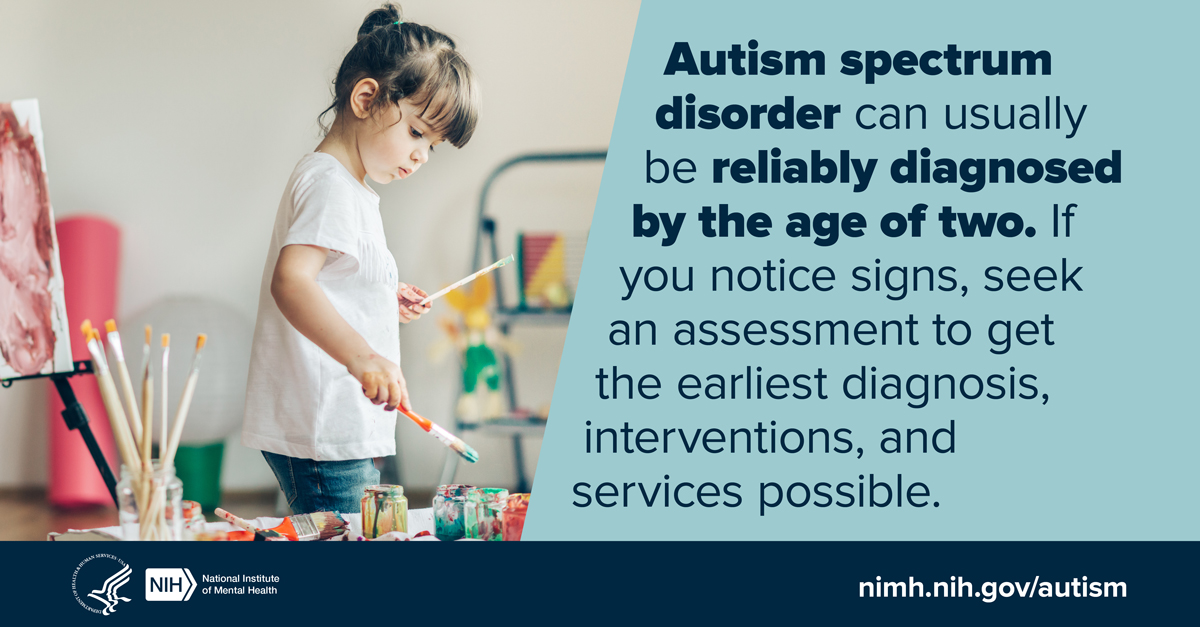
Autism spectrum disorder can usually be reliably diagnosed by the age of two. If you notice signs, seek an assessment to get the earliest diagnosis, interventions, and services possible. https://go.nih.gov/nLv8oCK #shareNIMH
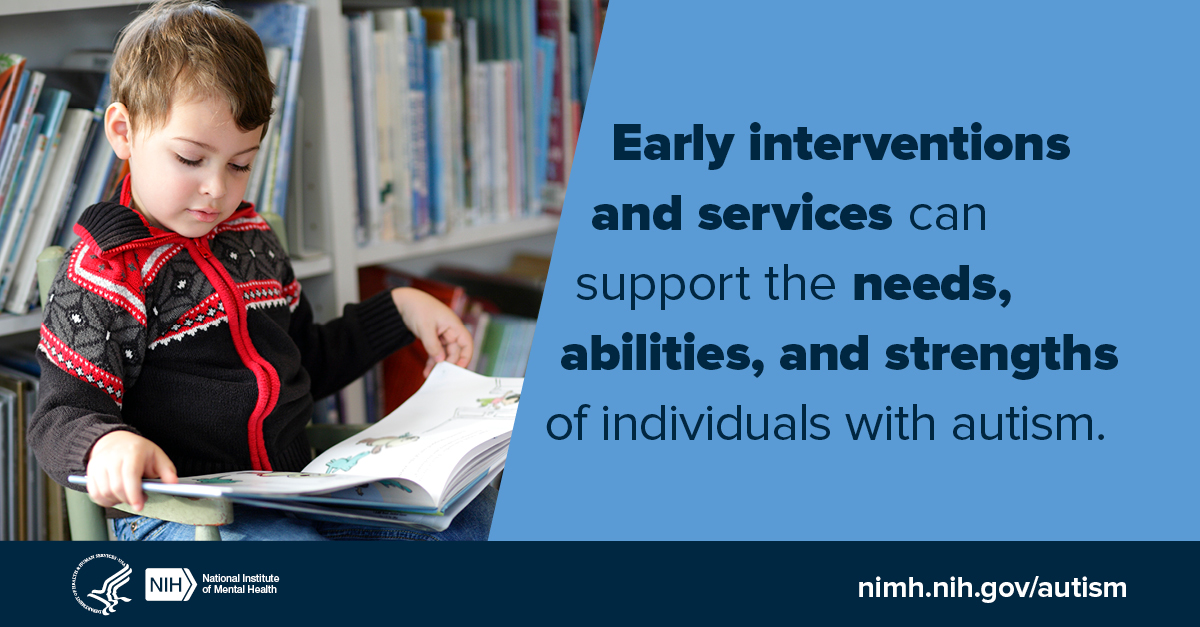
After diagnosis, interventions and services should begin as soon as possible to support the needs of individuals with autism and make the most of their strengths. https://go.nih.gov/nLv8oCK #shareNIMH
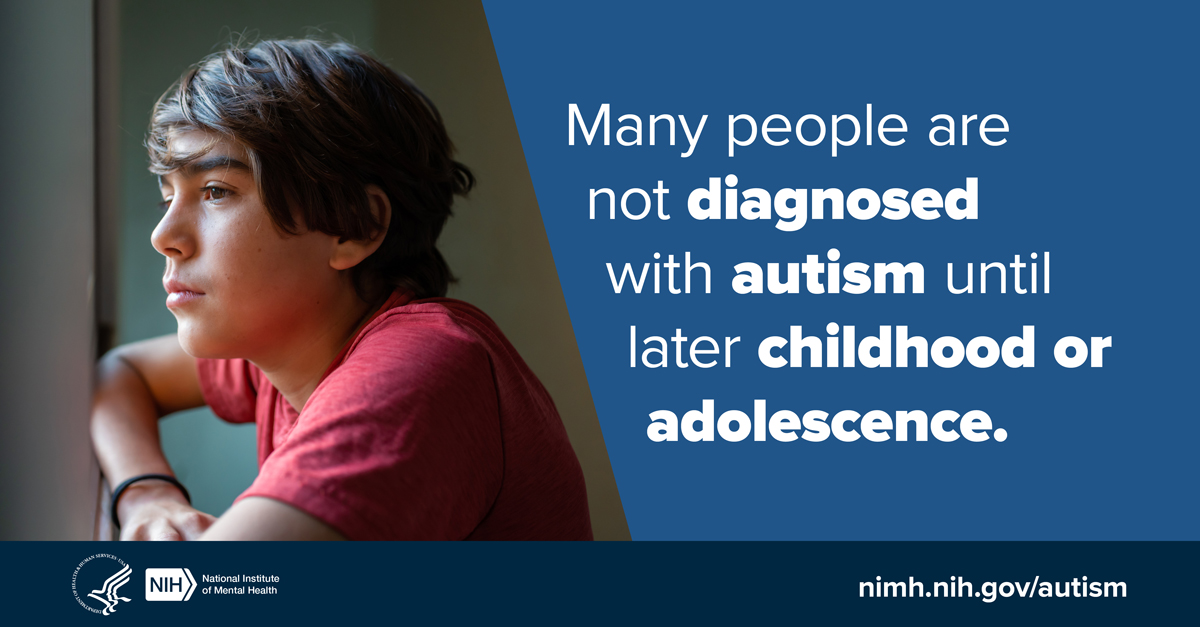
Many people are not diagnosed with autism until later childhood or adolescence. To read more about autism identification, visit https://go.nih.gov/nLv8oCK #shareNIMH
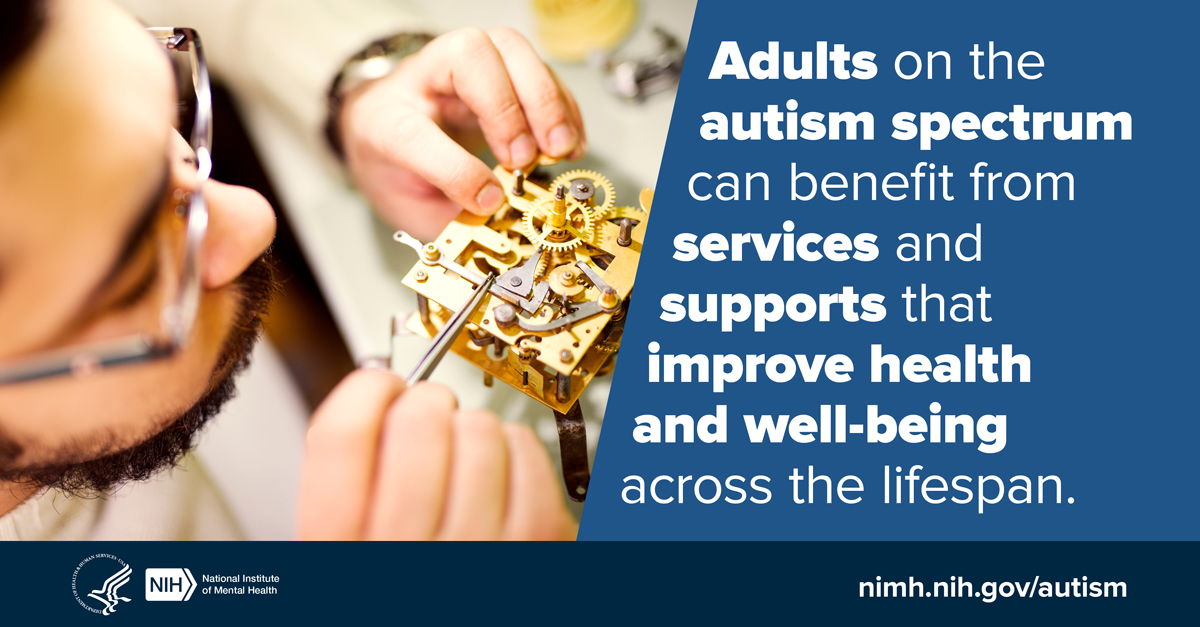
Adults on the autism spectrum can benefit from services and supports that improve health and well-being across the lifespan. Visit https://go.nih.gov/nLv8oCK to learn more about autism. #shareNIMH
Last Reviewed: March 2025